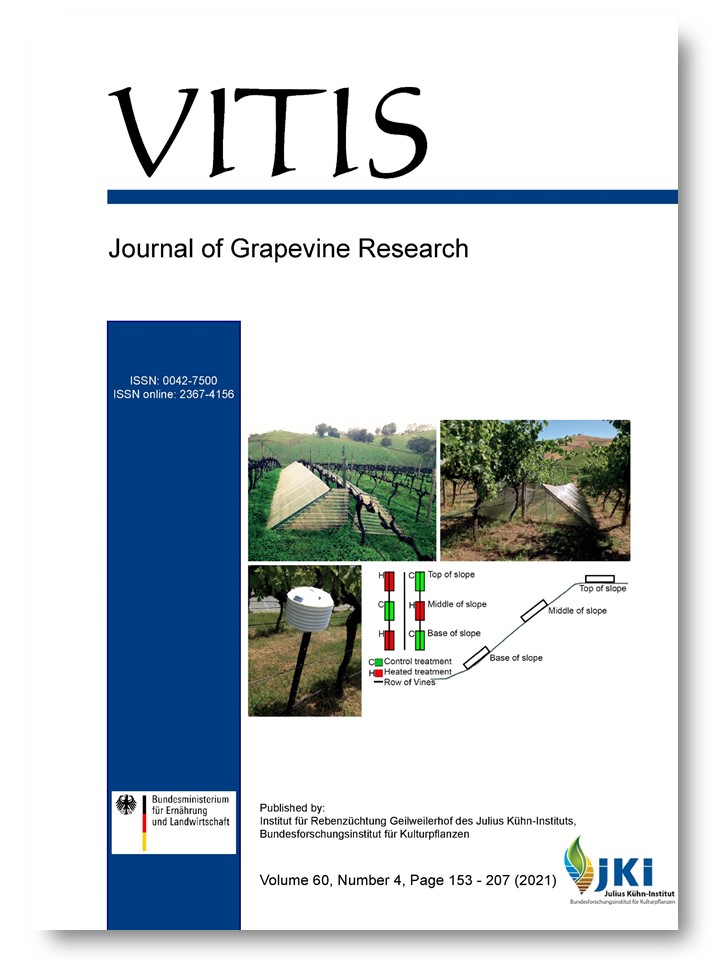The impact of temperature on 'Pinot Noir' berry and wine quality in a steeply sloping cool climate vineyard in South Australia
DOI:
https://doi.org/10.5073/vitis.2021.60.169-178Abstract
Viticulture is particularly sensitive to climate change, as temperature is critical to the two key concepts of terroir and vintage. Vitis vinifera L. 'Pinot Noir' is known to not grow well in hot climates. A trial was run over two years in a commercial vineyard in the Adelaide Hills, South Australia, to determine the impact of higher temperatures on the 'Pinot Noir' grape and wine colour. A factorial experiment combining two sources of variation in temperature was established: three positions on a steep vineyard slope, and two thermal treatments: unheated control and heated with passive open-top transparent chambers. Elevated temperature decoupled sugars and anthocyanins in grape berries, with the heated treatment grapes producing a lower anthocyanin concentration for the same concentration of total soluble solids. Temperature effects were less defined for small batches of wines prepared from these grapes, with the wines from heated vines having higher total phenolics, and perhaps consequently lower CIELab b* values (i.e., less blue pigmentation/anthocyanins). The study provides a unique insight into temperature gradients on a steeply sloping site and the effects on colour development of 'Pinot Noir' grape berries and wine.
Downloads
Additional Files
Published
Issue
Section
License
Copyright (c) 2021 The Author(s)

This work is licensed under a Creative Commons Attribution 4.0 International License.
The content of VITIS is published under a Creative Commons Attribution 4.0 license. Any user is free to share and adapt (remix, transform, build upon) the content as long as the original publication is attributed (authors, title, year, journal, issue, pages) and any changes to the original are clearly labeled. We do not prohibit or charge a fee for reuse of published content. The use of general descriptive names, trade names, trademarks, and so forth in any publication herein, even if not specifically indicated, does not imply that these names are not protected by the relevant laws and regulations. The submitting author agrees to these terms on behalf of all co-authors when submitting a manuscript. Please be aware that this license cannot be revoked. All authors retain the copyright on their work and are able to enter into separate, additional contractual arrangements.



